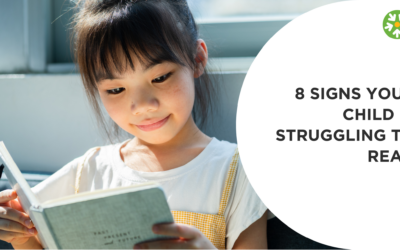Sometimes when children read, they do not pay attention to punctuation. They will read right over commas, right over periods, then they get to the end of a paragraph and just keep going to the next sentence. So some children need to be explicitly encouraged to pay attention to the punctuation marks. Punctuation really matters because it helps with comprehension.
If your child is running over punctuation, then you should talk to them about what the punctuation means and what you do with that punctuation when you see it. A comma is a short pause. A period is a long pause. To teach them this, you could take a sentence that has a comma and a period and read that for them and model that expression, then have them reread it with the appropriate pauses.
Another thing to point out to them is some sentences end with other kinds of punctuation besides a period. What do you do with your voice when you see a question mark? What do you do with your voice when you see an exclamation point? Talk through what these punctuation marks mean.
For example, give them the question “Mom, can I have a cookie?” Your voice goes up. Tell them we’ll do that when we read a question. Or, take the sentence “Mom, there’s a storm coming!” Your voice gets a lot of expression in it and it’s dramatic. Let them know we would do that same thing when we encounter an exclamation point in our reading.
The key is drawing their attention to how they would speak in real life and what that would look like when we see it in print. This all leads to stronger comprehension.
We hope this helps your child on their path to becoming a confident reader! For more tips on developing a confident reader, keep scrolling for our free guide.




